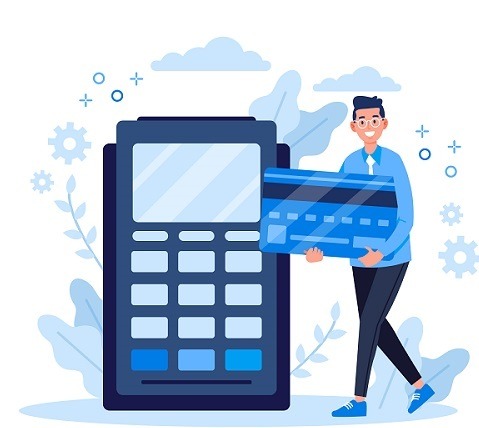How Does A Payment Gateway Keep Information Secure?
Whether you own an eCommerce platform, an eLearning platform, or a booking platform, your primary concern will always be to ensure that your customers are safe and that you provide them with an easy-to-use payment system.
The provider you select must meet the needs of your company as well as the needs of your customers.

Over 21% of customers abandon websites with a lengthy checkout process, and 17% abandon websites that are not secure.
Integrating an online payment gateway into your store will increase the security of your website and improve the overall user experience.
Continue reading if you want to learn more about payment gateways.
What is a payment gateway?
A payment gateway is a service that connects your bank account to the merchandising platform to which you want to transfer funds. It establishes a secure connection between online retailers and buyers.
Such a solution is a basic feature provided by all eCommerce solutions. It enables us to make purchases from anywhere in the world while maintaining the highest level of data security.
Payment gateways are virtual terminals that function similarly to physical point-of-sale terminals.
How does a payment gateway keep information secure?
In the world of eCommerce, security is critical. Customers are concerned about the security of their credit card and payment information. Data security can be ensured in online payments or eCommerce by utilizing technologies such as:
TLS encryption
SSL certificates are used by payment gateways. Checking the URL of the best payment gateway is an easy way to see if it uses a secure protocol. We can assume that we are secure if the URL begins with HTTPS.
PCI-DSS Compliance
The Payment Card Industry Data Security Standard was created to provide secure payment solutions by requiring businesses to use firewalls on their internal networks and encrypt cardholder data while refusing to store it on discs or paper.
Tokenization
A method of replacing real card numbers with randomly generated ones that are useless to hackers.
Two-factor authentication
An additional layer of security that sends a message to a registered mobile number to confirm the user's identity.
Benefits of using a payment gateway
Payment gateways offer numerous advantages, which is why they are so popular in the eCommerce world. Let us look at a few of them:
Security: Payment gateways ensure transaction security by protecting and encrypting sensitive data.
Sales boost: They assist you in expanding your business by allowing you to reach customers from all over the world.
Time-saving: Transactions are completed much faster than traditional manual processing through banks.
Every day at any time: Payment gateways operate around the clock.
Security, once more: Once again, payment gateways allow you to avoid suspicious transactions by blocking transactions from specific countries or IP addresses.
Marketing: They have a positive impact on marketing because they allow you to create an affiliate program with rewards based on referral commissions from other websites.
Payment gateway transaction types
Payment gateway providers accept a wide range of transactions. The most common are as follows:
Payment/sale/debit
The most common transaction. The payment gateway inquires with the bank about transaction authorization. If the transaction is successful, it will be completed by the end of a working day.
Authorization
A payment gateway holds the requested amount of money in the buyer's account for future settlement transactions. The time it takes for the money to be blocked depends on the card system and the issuing bank, but it usually takes between 3 and 7 days.
Capture
This type of transaction occurs when a merchant wishes to charge the amount of money previously blocked by an authorization transaction. To capture a transaction, it is necessary to send it for settlement.
Void
If the transaction is not settled, it allows the user's account to immediately unlock the previously blocked transaction without having to wait for the blocking time to expire.
Refund
A transaction that allows the merchant to cancel the transaction after the buyer has already been charged. It returns the funds to the client's bank account.
Chargeback
When a customer complains to the bank about the charges on their bill, this is an operation. A customer may file an appeal if the item was not delivered due to technical issues, unauthorized card use, or a friendly-fraud situation.
Credit
A transaction resembling a refund. It can only proceed if the previous transaction resulted in a successful transfer of funds to the buyer's account. The merchant may credit the user's credit card in an amount greater than the amount of money from the previous successful transaction.
Post Your Ad Here
Comments